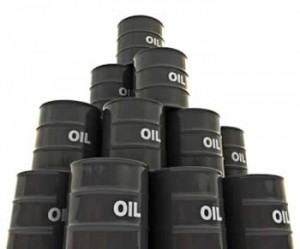
Oil and gas analyst Dr Doug Youngson initiated coverage on eleven stocks and picked Kurdistan, East Africa and the North Sea as his ‘Top Regions’.
Kurdistan, East Africa and the North Sea are three key oil and gas regions that are likely to see significant positive momentum this year, according to Seymour Pierce.
Oil and gas analyst Dr Doug Youngson initiated coverage on eleven stocks and picked the three places as his ‘Top Regions’. At the same time he put a number of companies operating in these regions on his watchlist.
In Kurdistan, he picks out Gulf Keystone Petroleum (LON:GKP) and Heritage Oil & Gas (LON:HOIL).
Cove Energy (LON:COV) was Youngson’s pick in east Africa, while in the North Sea he prefers Faroe Petroleum (LON:FPM) and Xcite Energy (LON:XEL).
Kurdistan
Youngson highlights an estimate, made by the US geological survey, that Kurdistan hosts 40 billion barrel of oil and 60 trillion cubic feet of gas with low geological exploration risk
He says the semi-autonomous region of northern Iraq is more stable than the rest of the country and this has been one of the drivers of new investment in the area.
“Activity in Kurdistan has been steadily increasing in recent years with the entrance of several small and medium independent E&Ps,” the analyst said.
“However, the region finally got the “seal of approval” following the announcement that ExxonMobil was to acquire significant acreage in six exploration blocks in late 2011. More recently, speculation has mounted that Total were planning a similar move, although this has yet to be formally announced.”
Youngson adds: “We believe that the increasing influx of foreign oil companies into Kurdistan and the increasing capital expenditure they bring is the most likely driver for resolution of the oil law.
“Increases in production outside Kurdistan have been disappointing so far and if Iraq is to see any tangible increase in production in the short to medium term we believe that this will come from Kurdistan.”
The analyst says that Gulf Keystone Petroleum has been a long term player in Kurdistan and it has seen considerable exploration success so far, with it finding around 15 billion barrels of oil in place.
“This year will see the company move into export production for the first time, resulting in the first significant cash inflows for GKP,” he said.
“The entrance of ExxonMobil and Total into the region has enhanced its credibility as a potential major future oil producing province. We feel that the persistent takeover rumours are premature, but likely to be accurate in the longer term.”
In the year ahead he expects share price drivers to come from further resource upgrades and increases in production at the Shaikan field.
Meanwhile, Youngson is also watching Heritage Oil which, he says, has struggled to recover since its Miran West field was confirmed to be gas bearing and not oil bearing. He says Heritage is looking at ways to export the gas and it is still exploring Miran.
The analyst reckons positive results could boost the share price in 2012.
East Africa
Youngson says the region has now entered a phase where successful explorers are attracting interest from larger independents as well as the majors.
He expects the deal making to continue as exploration continues to prove successful.
“We believe that 2012 will continue to see exploration success from the minor companies in the shallow water and hopefully in the deeper water from the new entrant majors,” Youngson explained.
“Mergers & acquisitions on a greater scale is also likely to be a prominent feature. Cove Energy, for example has already put up the ‘for sale’ sign and we can expect further consolidation in the region.”
Cove is on the analyst’s watchlist. He believes the stock is very likely to attract interest from the majors who are keen to potentially develop domestic and export gas projects in the region.
North Sea
The North Sea experienced record levels of investment last year at US$7.5 billion, the analyst said. Furthermore he believes this will continue in the coming years.
He notes that investment was skewed towards development rather than exploration and appraisal work.
There was also the highest level of corporate transactions since 2005, he adds, with around US$4 billion worth of assets changing hands in the year.
Going forward Youngson believes heavy oil projects may become increasingly attractive following recent successes.
“Following the successes of Statoil, Xcite Energy and Nautical Petroleum in heavy oil, we would expect these types of projects to become more attractive throughout the region,” he said.
“The fiscal terms for such projects will also improve project commerciality and hopefully reduce the decline in oil production from the UK sector.”
Youngson is watching Faroe Petroleum because of its robust mix of production growth and high impact exploration.
“The company has a strong balance sheet with sufficient cash reserves and debt facilities to fund its progressive drilling, appraisal and development activities,” he said.
Meanwhile the analyst is also keeping an eye on Xcite Energy as it nears the development stage of the Bentley heavy oil project.
“With the rig on site awaiting delayed DECC approval and development drilling due to start in February, are we about to see resurgence in this stock? We think so, but it may prove to be another turbulent year for investors should initial drilling results fail to deliver,” Youngson explained.